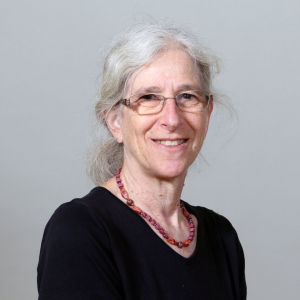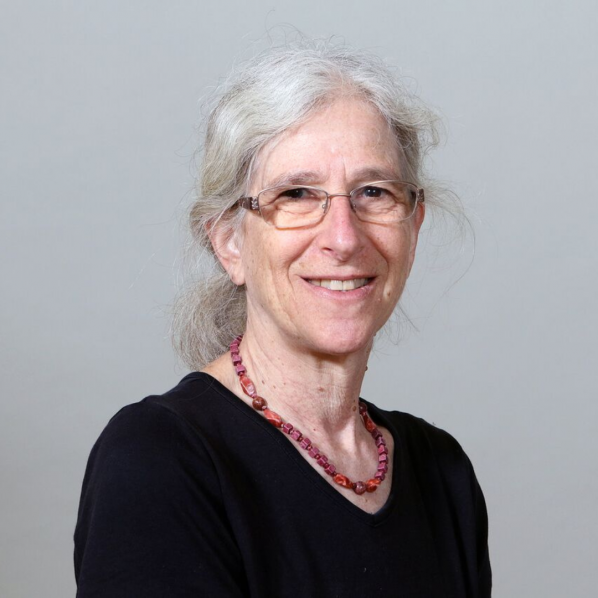"Central America’s Forgotten History: Revolution, Violence and the Roots of Migration"
with Dr. Aviva Chomsky, Professor of History at Salem State University
Monday, October 28, 2024, from 7-9 p.m.
Room 116, Anne Belk Hall
[Add to Google Calendar] [View on Engage]
BOONE, N.C. — Appalachian State University's Department of History is pleased to welcome professor, historian, author and activist Dr. Aviva Chomsky. She will present "Central America’s Forgotten History: Revolution, Violence and the Roots of Migration" on Monday, October 28, 2024, from 7-9 p.m. in Room 116 of Anne Belk Hall, located at 224 Joyce Lawrence Lane in Boone.
Dr. Chomsky is professor of history and coordinator of Latin American studies at Salem State University. She has published widely on labor history, immigration and undocumentedness, Central America, Cuba and Colombia. Her most recent books include Is Science Enough? Forty Critical Questions about Climate Justice, Central America’s Forgotten History: Revolution, Violence and the Roots of Migration and Organizing for Power: Building a Twenty-First Century Labor Movement in Boston, the latter co-edited with Steve Striffler. She has been active in Palestine and Latin America solidarity and immigrants’ rights movements for several decades. Learn more about Chomsky at directory.salemstate.edu/profile/avi.chomsky.
In her lecture, Chomsky will discuss the following: President Biden claimed he would address “the roots of migration” from Central America, identifying these as poverty, violence and corruption. This talk will address what Biden forgot to ask, looking at the roots of poverty, violence and corruption in Central America in centuries of conquest, foreign domination and extractive economic projects. Chomsky will focus especially on how the revolutions of the 1980s attempted to create a more just reality, how they were crushed and how the neoliberal projects that followed left many Central Americans with few options other than fleeing their countries. In her talk, she will trace how the Obama, Trump and Biden administrations have studiously erased this history and supported more of the very policies forcing people to leave.
Book sales and signings of Central America’s Forgotten History: Revolution, Violence and the Roots of Migration will follow the lecture.
The lecture is organized by App State's Department of History and co-sponsored by the College of Arts and Sciences, Department of Languages, Literatures and Cultures, Department of Anthropology and global studies program in the Department of Interdisciplinary Studies. The event is free and open to the public. For a disability accommodation, visit odr.appstate.edu.
For more information, visit history.appstate.edu/events/guest-lecture-dr-aviva-chomsky. Questions can be directed to Dr. René Harder Horst, professor in the Department of History, via email at horstrh@appstate.edu or via phone at (828) 262-6007.
###
About the Department of Anthropology
The Department of Anthropology offers a comparative and holistic approach to the study of the human experience. The anthropological perspective provides a broad understanding of the origins as well as the meaning of physical and cultural diversity in the world — past, present and future. Learn more at anthro.appstate.edu.
About the Department of History
The Department of History offers a broad curriculum in local, national, regional and world history at both the undergraduate and graduate levels, which encourages history majors to develop a comprehensive approach to human problems. The study of history is an essential part of a liberal arts education and offers valuable preparation for many careers, such as law, journalism, public history, public service and business, as well as in teaching and the advanced discipline of history. Learn more at history.appstate.edu.
About the Department of Interdisciplinary Studies
The Department of Interdisciplinary Studies offers graduate and undergraduate degrees in four program areas: Appalachian studies; gender, women’s and sexuality studies; global studies; and interdisciplinary studies. The department is also home to Watauga Residential College, an interdisciplinary, alternative general education program. The department promotes creative and imaginative engagement through a cross-disciplinary investigation of complex systems and problems. Learn more at interdisciplinary.appstate.edu.
About the Department of Languages, Literatures and Cultures
The Department of Languages, Literatures and Cultures offers courses that enhance students’ understanding of other cultures and languages as well as their own, making them prepared for lifelong learning in a multicultural world. Learn more at dllc.appstate.edu.
About the College of Arts and Sciences
The College of Arts and Sciences (CAS) at Appalachian State University is home to 17 academic departments, two centers and one residential college. These units span the humanities and the social, mathematical and natural sciences. CAS aims to develop a distinctive identity built upon our university's strengths, traditions and unique location. The college’s values lie not only in service to the university and local community, but through inspiring, training, educating and sustaining the development of its students as global citizens. More than 6,400 student majors are enrolled in the college. As the college is also largely responsible for implementing App State’s general education curriculum, it is heavily involved in the education of all students at the university, including those pursuing majors in other colleges. Learn more at cas.appstate.edu.

